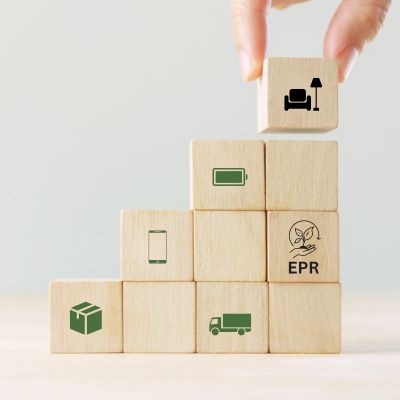On 03, Apr 2024 | In | By patrick.horzic@techprotect.de
Textiles And Furniture 
When manufacturers take responsibility for the environment
Extended Producer Responsibility (EPR) is a policy instrument that holds manufacturers accountable for the entire life cycle of their products in terms of environmental impact. The concept of extended producer responsibility was first introduced in the 1990s. Electrical and electronic equipment , batteries und and packaging. in Germany, fall under the Extended Producer Responsibility. The legal foundations for this concept are included in the ElektroG (Electrical and Electronic Equipment Act), BattG (Battery Act), and VerpackG (Packaging Act). Furthermore, the principle of product responsibility is anchored in the Circular Economy Act.
The complexities arising from the different national implementations of the directives regarding WEEE (Waste Electrical and Electronic Equipment), batteries, and packaging are a challenge for companies that need to be aware of and comply with the various legislations when marketing their products in the EU-Member States. Textiles and furniture for private consumers have also become subject to Extended Producer Responsibility (EPR) in France since 2022. The legal framework for this sector was created by the so-called “Loi AGEC” (Circular Economy Act) of 10 February 2020.
Our services in the context of EPR:

- Comprehensive information on legal obligations
- Assessment of the specific obligations of your company with regard to your products ,Conducting a compliance check on your current process
- Taking over the handling of operational tasks like, contractual registrations with authorities and obtaining the Unique Identifier (UIN), setting up links to take-back waste schemes, relaying sales data reporting, consultancy on labeling obligations such as the TRIMAN logo in France, evaluation of cost-saving potentials
- Audit of waste textile-related invoices
- Rechnungsprüfung im Zusammenhang mit Alttextilien
- Supporting with audits conducted by national regulatory bodies
Are you ready to fulfill your obligations as a manufacturer or initial distributor?
Contact us for an individual consultation or visit our blog, to find out more about the latest developments and solutions in the field of textile and furniture compliance.
Contact us

